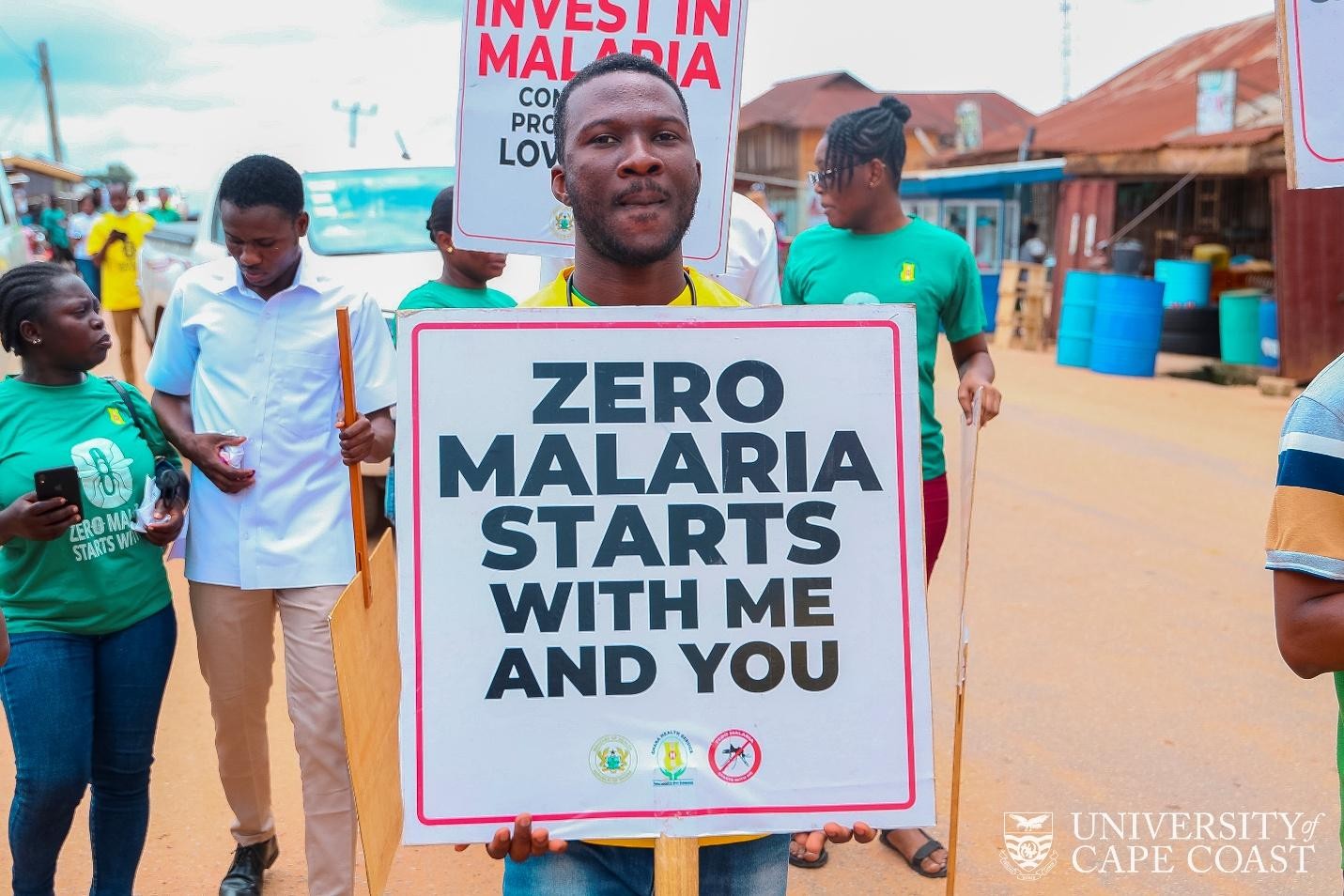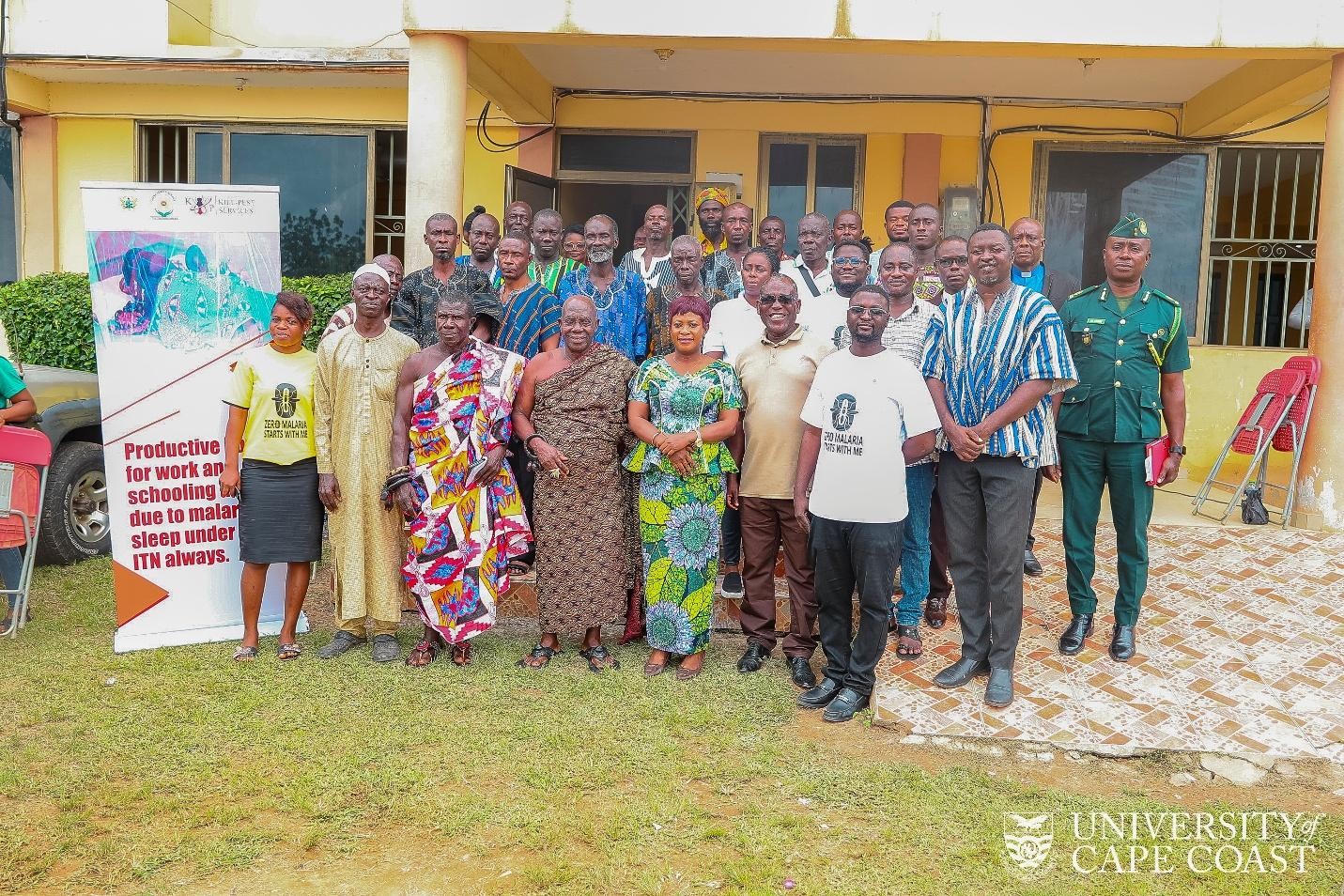The Department of Conservation Biology and Entomology at the University of Cape Coast (UCC) has observed this year’s World Mosquito Day in the Akyemansa District of the Eastern Region.
The event, held under the theme " Living with Mosquitoes in Ghana – Their Threats and Our Response," brought together members of the community, traditional leaders, and government officials.
It featured free health screening for participants.
In a keynote address, a Senior Lecturer at the Department of Conservation Biology and Entomology, Dr. Andreas Adutwum Kudom, lamented the continued toll malaria takes on lives and livelihoods, particularly in underserved communities.
“On this World Malaria Day, we renew our commitment to saving lives through direct support, strong advocacy, and strategic investments in community health solutions.”
He called on government agencies, healthcare professionals, and development partners to rekindle joint efforts to eliminate malaria.
According to him, prioritizing the health and dignity of Ghanaians, especially women and children who bear the brunt of the disease, must remain a shared responsibility.
He noted that while the eradication of malaria may be a long and complex process, it was possible with the right systems in place.
He recalled how the Department helped fight the outbreak of Dengue fever in the district in 2024.
DCE of Akyemansa, Mrs. Linda Ahenkorah (middle), in a photo with some traditional rulers and dignitaries who graced the occasion
In a welcome address, the District Chief Executive Officer of Akyemansa, Mrs. Linda Ahenkorah, urged the public to unite to fight malaria.
The call, she added, would help prevent all malaria-related cases globally to promote better living conditions among the various communities.
She revealed that malaria is the third most deadly sickness in the world, adding that the cases keep increasing among children and pregnant women.
Mrs. Ahenkorah further stated that malaria was caused by infection with a protozoan parasite that belongs to the genus Plasmodium, transmitted by female anopheles species of mosquito.
She said malaria may also be spread by transfusion of blood from infected people or the use of contaminated needles or syringes, whilst people with untreated malaria may spread infection to mosquitoes that may bite them.
The DCE observed that the effective method of preventing malaria was sleeping under insecticide-treated mosquito nets (ITN), using mosquito repellents, indoor residual spraying, fumigation of stagnant waters, clearing bushes around houses, and other personal hygiene mechanisms that would help curb the disease.
She also advised the public to always engage in regular health check-ups to prevent any other sickness and unforeseen conditions.
World Malaria Day was instituted to raise global awareness of the efforts to control and ultimately eradicate malaria.
Source: Documentation and Information Section-UCC


